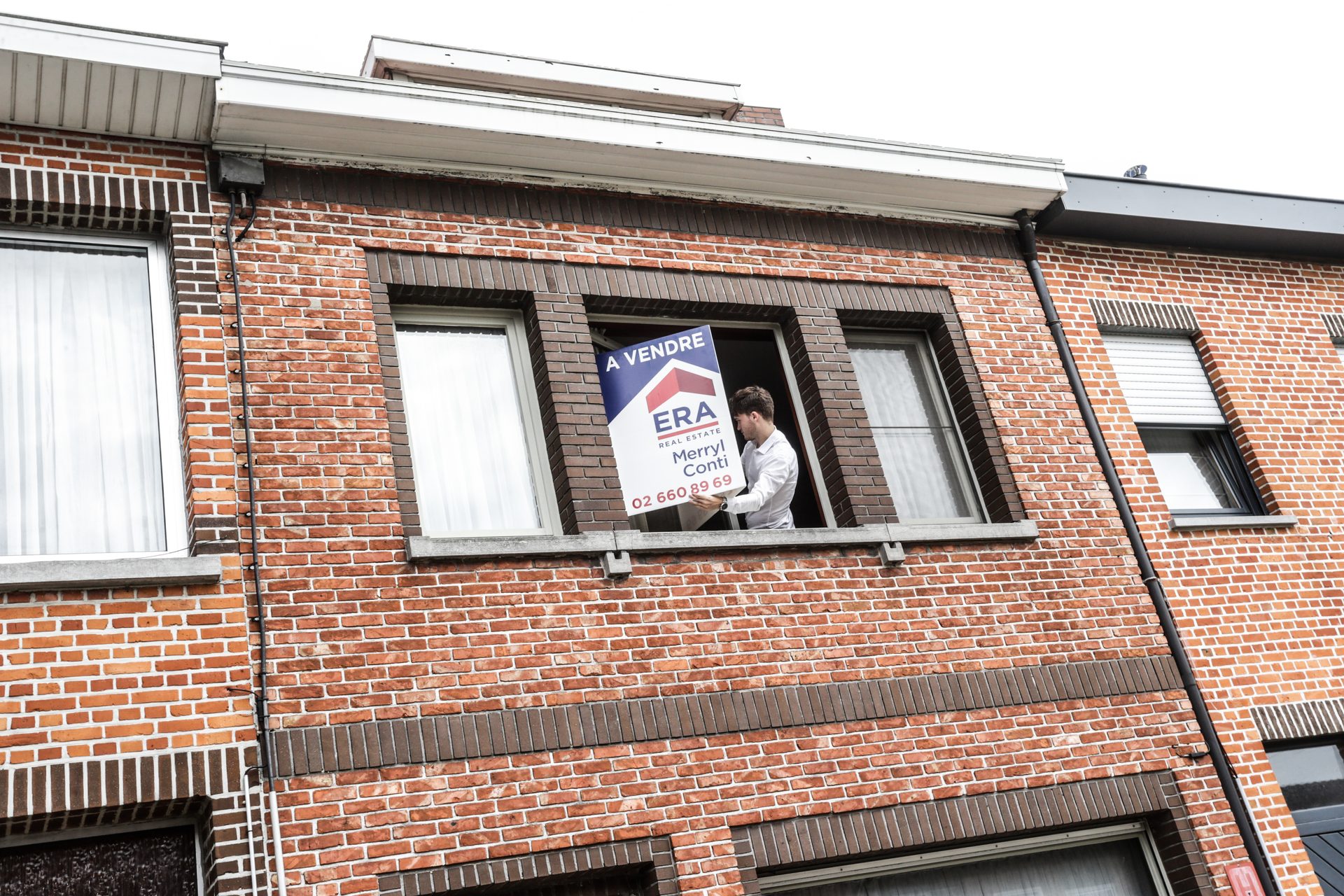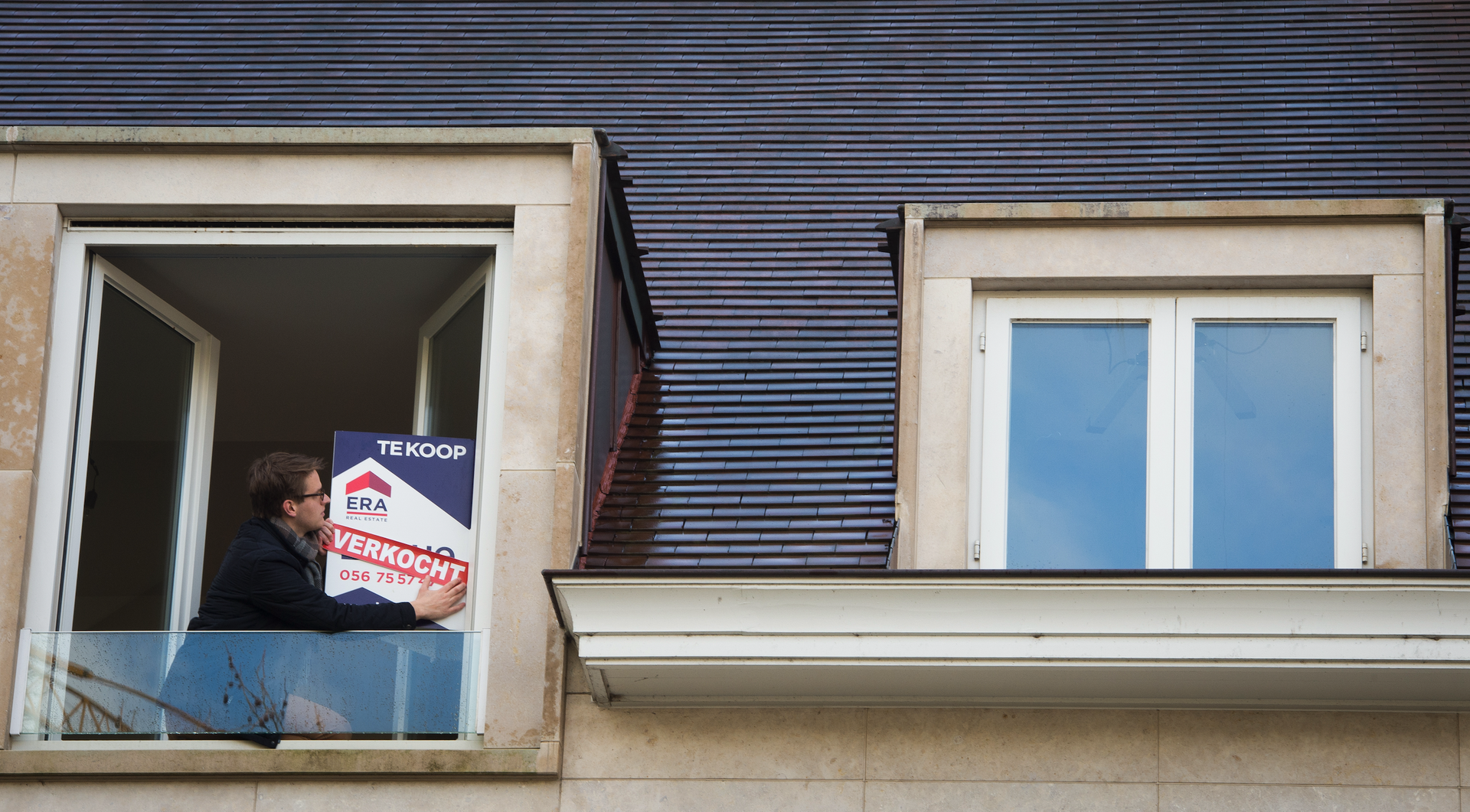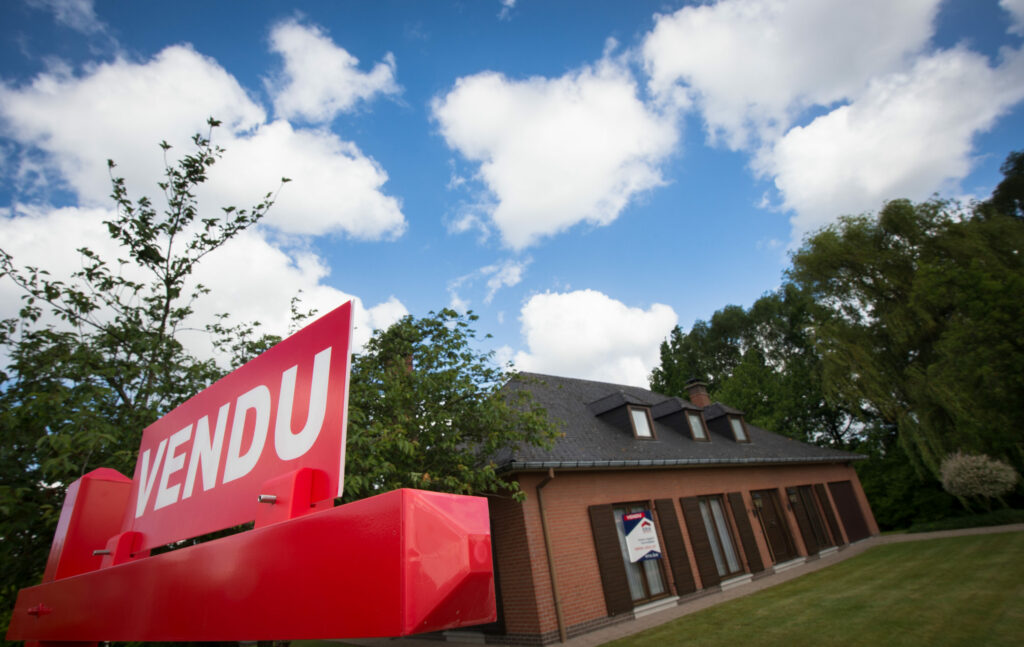Whether you were born Belgian or are making it your home, buying property can be a daunting process that has some specific protocols that differ from other countries. This guide outlines the key considerations for prospective buyers.
Belgium is currently seeing a dip in the property market with fewer people looking to buy as interest rates remain high. A drop in demand can increase the negotiating power of those who are looking to purchase property, though interest rates are likely to fall in the medium and long term.
Before making the leap to ownership, it's important to be aware of the necessary steps and documents that will be required, which can vary in some aspects according to the region.
Pre-purchase: Setting the budget
To reduce the risk of making a purchase you will regret, it is advised to take on a professional from the start, especially for first-time buyers in Belgium. The extra cost will guarantee smooth sailing.
Working out your budget obviously plays a major part in deciding what you can buy, and where. House prices differ massively per region: Brussels is the most expensive (the average property is between €550,000 - €600,000); the average in Flanders is around €350,000 and in Wallonia between €200,000 and €250,000. Flat prices in Flanders and Brussels are comparable while they are cheaper in Wallonia.
When working out your budget, take into account additional costs, besides the price of the good. These costs differ per region: for a €250,000 property, expect additional costs of between €10,000 and €35,000. You can calculate these on the official civil website of the Belgian notary's office. In principle, banks can finance a maximum of 90% of the value of the house, so bearing in mind additional costs, it is best to have at least 20% equity.
Calculating the monthly payments you can afford is key to deciding how much you can borrow, so it is also advisable to make an appointment with your bank to discuss loans and get a clear picture of the entire purchase budget. Buyers shouldn't only ask for a quote from their current bank but also use mortgage comparison tools to explore all their options.
Finding a property
These preliminaries being done, the house hunt starts properly. Properties are listed on classified websites, newspaper adverts, or through estate agents in the neighbourhood.
Important considerations are the condition of the property, whether it meets electricity standards, its energy efficiency indicated by an EPC certificate (Flanders for example recently introduced a duty to renovate energy-wasting houses within five years), and if it is located in an area prone to floods (the seller must provide the buyer with a set of documents to prove these elements). Finding out more about traffic noise levels, proximity to public transport, forests, businesses or housing estates is also key.

Credit: Belga / ERA
The more properties you look at, the better your understanding of the housing market. This helps put buyers in a stronger position when negotiating.
It is also a good idea to view the property several times, preferably with an expert. This is also a good opportunity to find out about any incentives or tax breaks that could be linked to the purchase, such as lower registration fees when carrying out energy-efficient renovations. Belgian notary offices can assist buyers with legal advice throughout the procedure, including about tax questions.
Purchase and necessary documents
There are several types of sales in Belgium: a private sale (the most common; the buyer and the seller reach an agreement between themselves); a voluntary public sale (interested parties bid in public and consecutively, with the highest bid constituting the selling price if accepted); with Biddit, public sales can also take place online. (candidate-buyers bid for eight days; this speeds up the buying process).
In a private sale, the buyer can just agree to the asking price. But in Belgium, it is customary to make an offer on the property and propose a price to the seller. During the negotiation phase, take into account the cost of similar properties and how long the property has been on sale, as this could strengthen your bargaining power. Bidding 10% below the asking price as an opening bid is common. Note that every bid made is binding.
The potential buyer can put in a bid either through a letter, e-mail or via a text message. It could even be on a beer coaster. Even an offer made verbally is binding but it is wiser to provide written proof to avoid problems. The offer must include the name of the buyer, the address of the property, the price offered, the duration of the purchase offer, and the buyer's signature and date.

Credit: Belga/ Benoit Doppagne
An offer is binding once accepted and the seller can claim damages if an offer is withdrawn (compensation of around 10% of the purchase price). So even if you choose the beer mat option, it is advisable to have the offer checked by a notary. Putting a time limit on the offer is also important.
An uncertain buyer can also ask for an option to buy. If the seller agrees, this provides more thinking time during which the seller won't give the property to another person.
After accepting an offer
The next step is the sales agreement. This is a critical document usually signed within a month of the offer being accepted. A deposit (usually 10% of the sale price) is often also requested from the buyer when signing the sales agreement.
The buyer can enter into a sale agreement with a condition precedent (for example obtaining a mortgage credit). This is recommended and means that the agreement will only come into effect if the buyer secures a mortgage.
At this point, the seller must provide the buyer with a set of documents (at the latest when the sales agreement is signed). These include:
- The electrical installation inspection certificate
- Soil attestation certificate (to know whether the soil is contaminated)
- Asbestos attestation (compulsory for houses and buildings constructed before 2001)
- Heating oil tank certificate (if the house is heated with heating oil)
- Energy performance certificate (EPC, shows the energy efficiency of the house with a score)
- Information on the property's susceptibility to flooding
- Post-intervention file (contains technical data on the building's structures, how the structure was constructed and what materials are used in the building)
- Town planning information, information from the Land Registry (plot number, owner, area, type of property, cadastral income...)
- Heritage value information
Under Belgian law, ownership of the property is technically transferred when the agreement is signed. Neither the buyer nor the seller can go back after this, so the terms and conditions in the sales agreement must be as complete as possible.
It is often contractually provided that the transfer of ownership takes place upon the signature of the deed, which incorporates the contents of the agreement. It is therefore essential that all information is included correctly in the sale agreement.
The sale is officially complete and the buyer becomes the new owner when the deed is signed at a notary office to check that all legal obligations have been met no more than four months after signing the sale agreement. At that time, the buyer will also receive the keys to the property.
The registration of the mortgage is then sorted by the notary to ensure the full payment can be made. An additional step in the process is quite specific to Belgium: the purchase deed must be transferred to the Office of Legal Security (registered for credit), which will levy the appropriate tax and send an assessment notice to the taxpayer. This step is necessary so that third parties become aware of the transfer of ownership.
The notary delivers a copy of the ownership title to the buyer in a final step. From this point, you will have to start paying annual property tax. When you have moved into your new home, don't forget to change your official address.
Main regional differences
Several additional costs for the buyer are paid by the notary, including the registration fee of 1% on the amount guaranteed by the mortgage for the mortgage loan and the registration fees or VAT (in the case of new construction) for the purchase. These are a significant additional cost on top of the purchase price. However, they differ in Brussels, Flanders and Wallonia.
What a buyer pays to a notary is only partly the fee. Most of the fees are costs that notaries have passed on to administrations and tax authorities
In Flanders, the most common registration duty is 3% for a family home that the buyer will occupy within three years (only if they have no other real estate in Belgium or abroad). This is reduced to 1% if the buyer carries out major energy renovation work within five years but can go up to 12% for a second or subsequent home. If the purchase price is under €220,000 (€240,000 in urban areas), the buyer gets a discount of around €2,800.
Related News
- Belgium's highest prices: Most expensive and cheapest communes in Brussels
- Brussels deprived of 4,500 'unlawfully' vacant homes, researchers say
In the Brussels-Capital Region, the buyer pays more at first glance but receives an exemption (so-called abattement). This is a discount on registration duties for the first €200,000 for properties costing under €600,000. This allows for a saving of up to €25,000 when buying a first home that the buyer will live in for at least five years.
In Wallonia, registration fees depend on the price of the house. If the buyer purchases a "modest home", under certain conditions they pay a reduced registration duty of 6%, while others pay 12.5%. An exemption on the first €20,000 for a person's first home amounts to a saving of around €2,500.
When buying a new home from a construction promoter, the buyer pays 21% VAT instead of registration fees.

